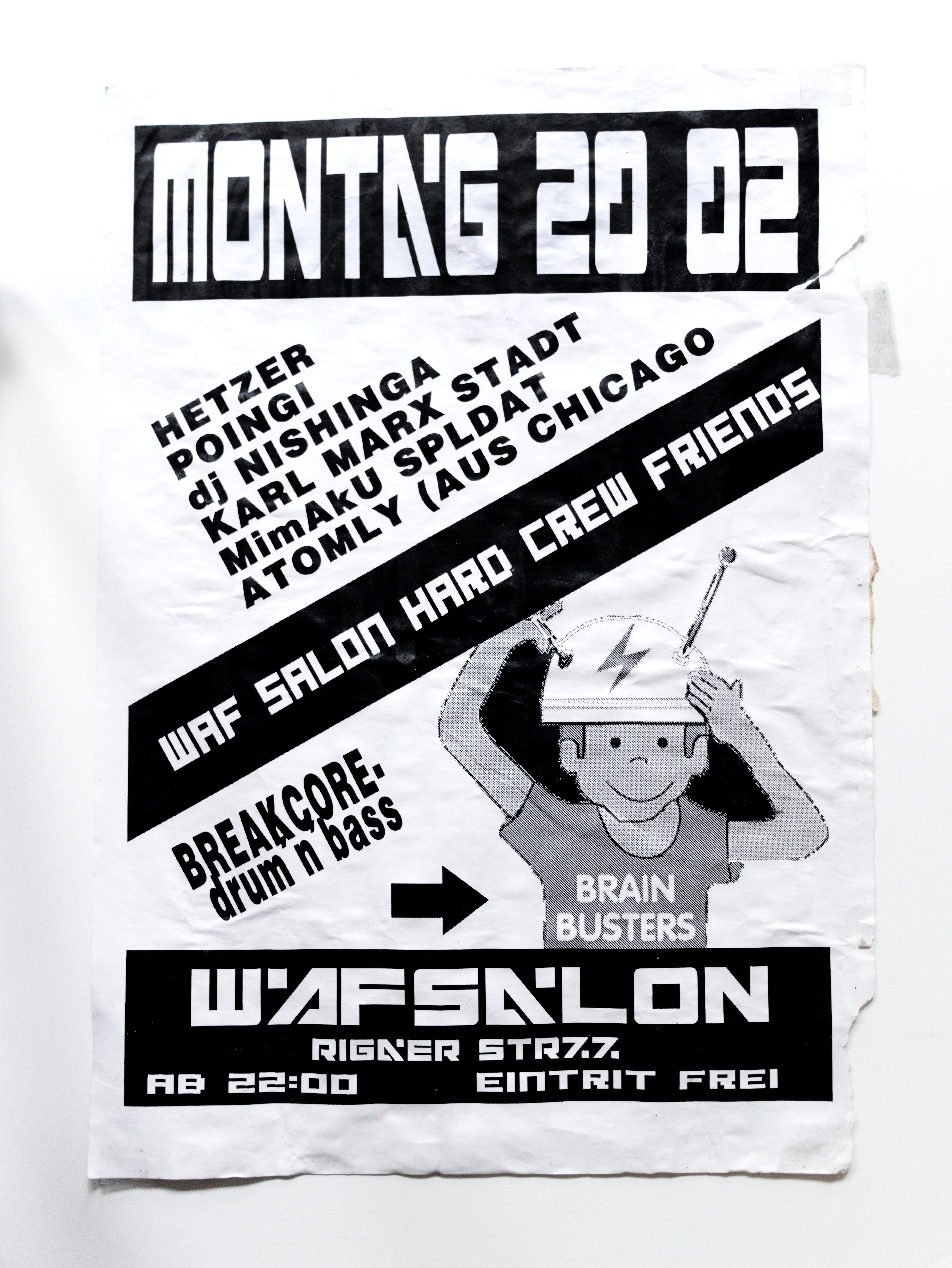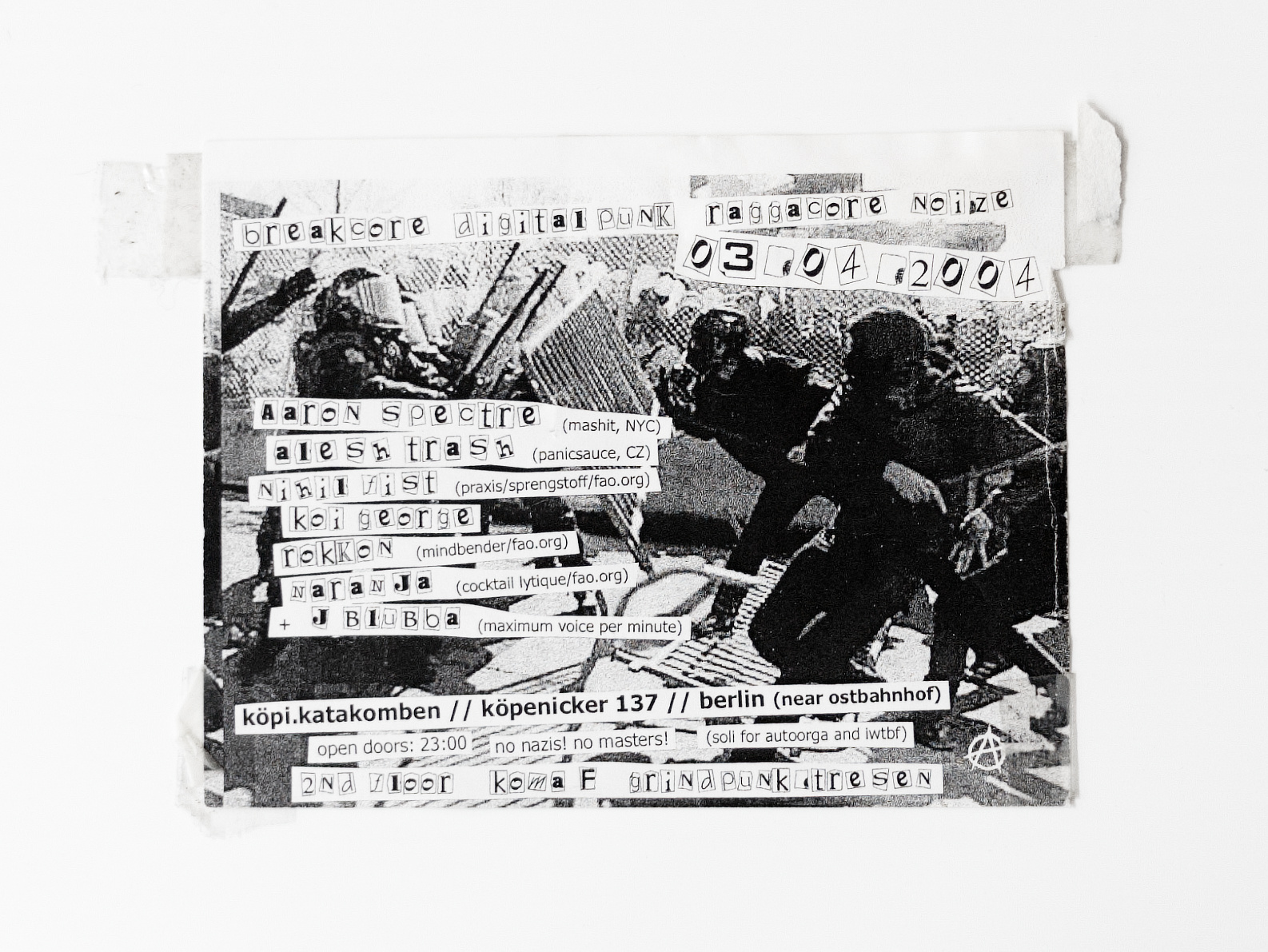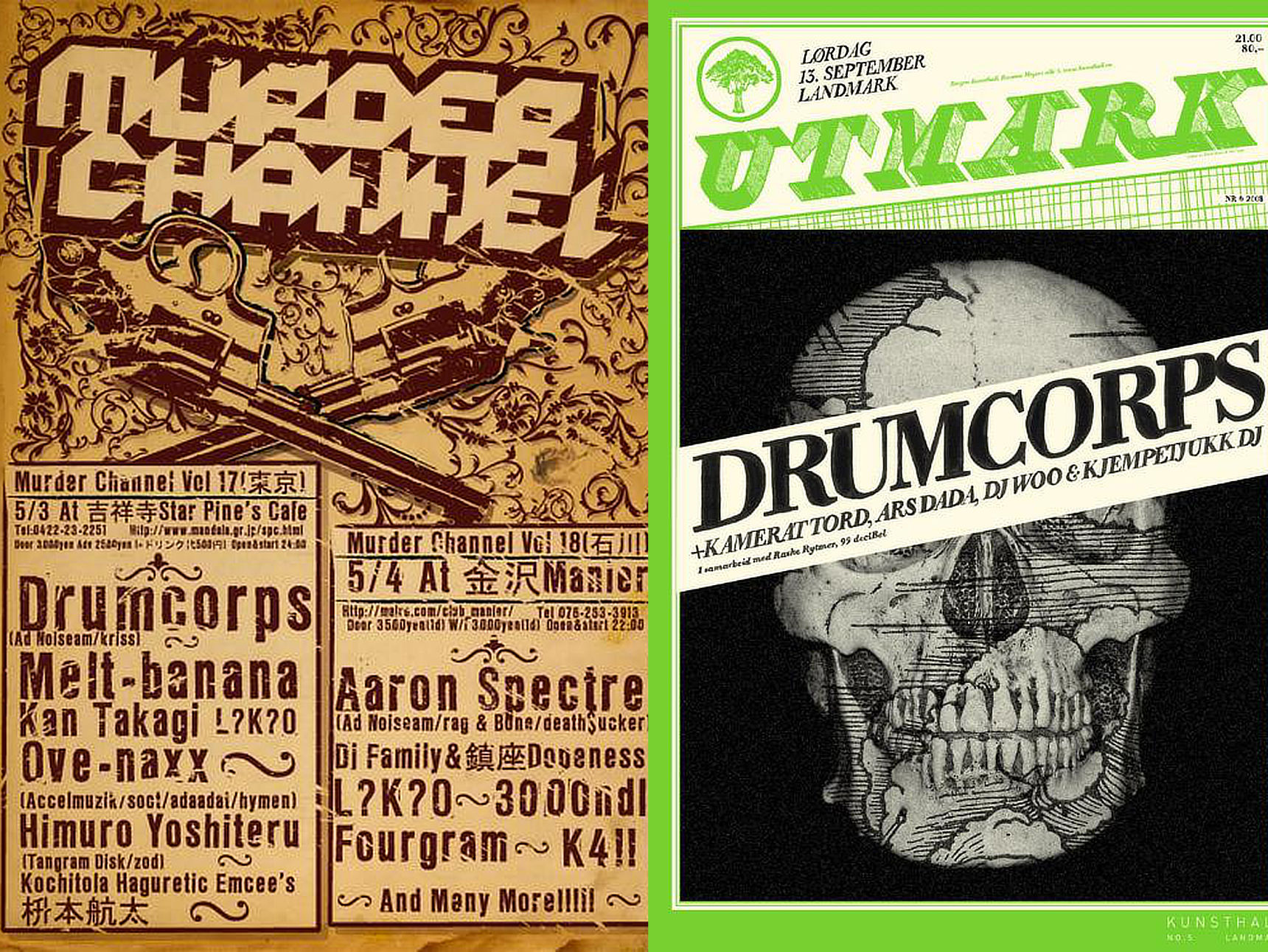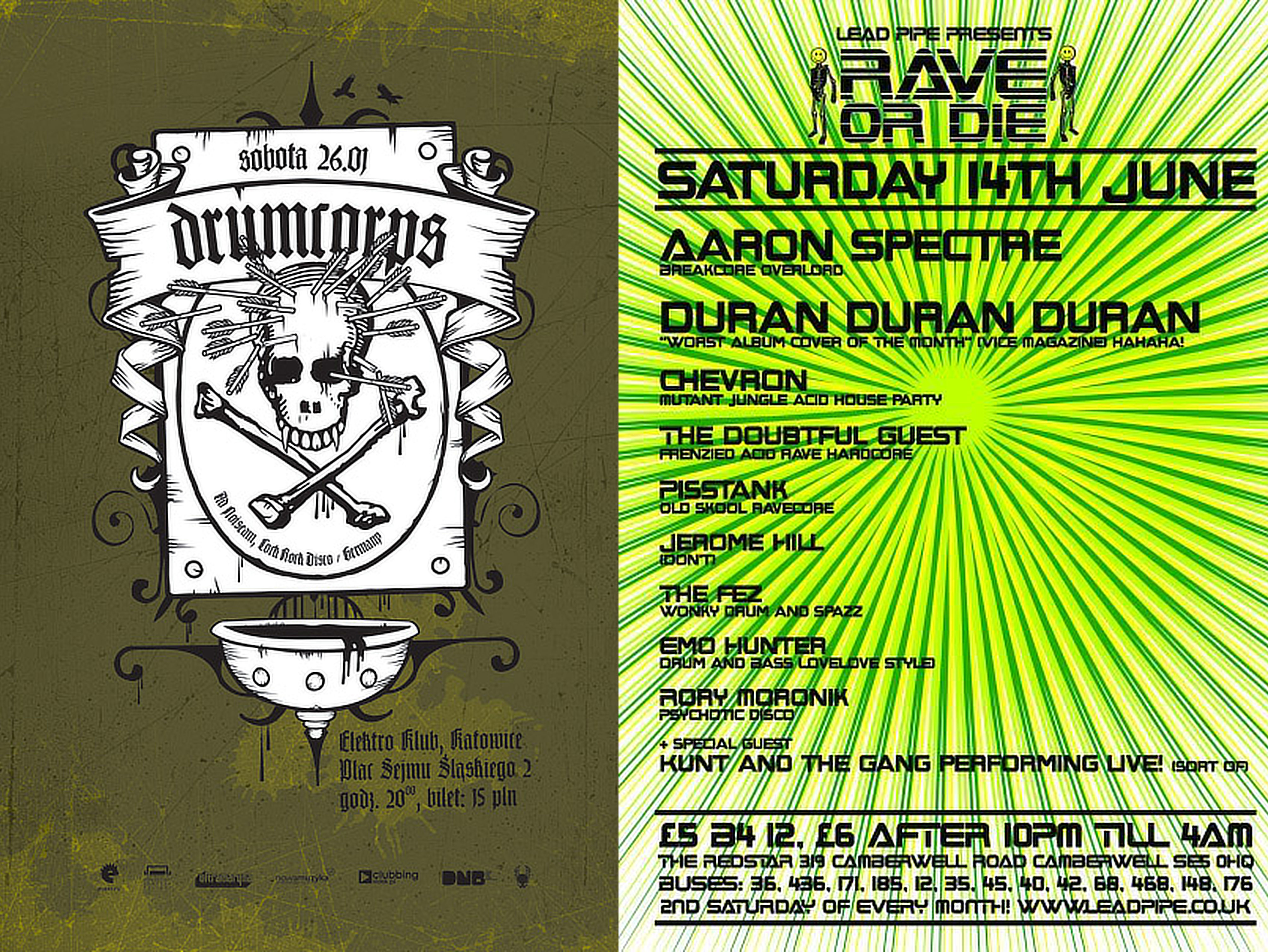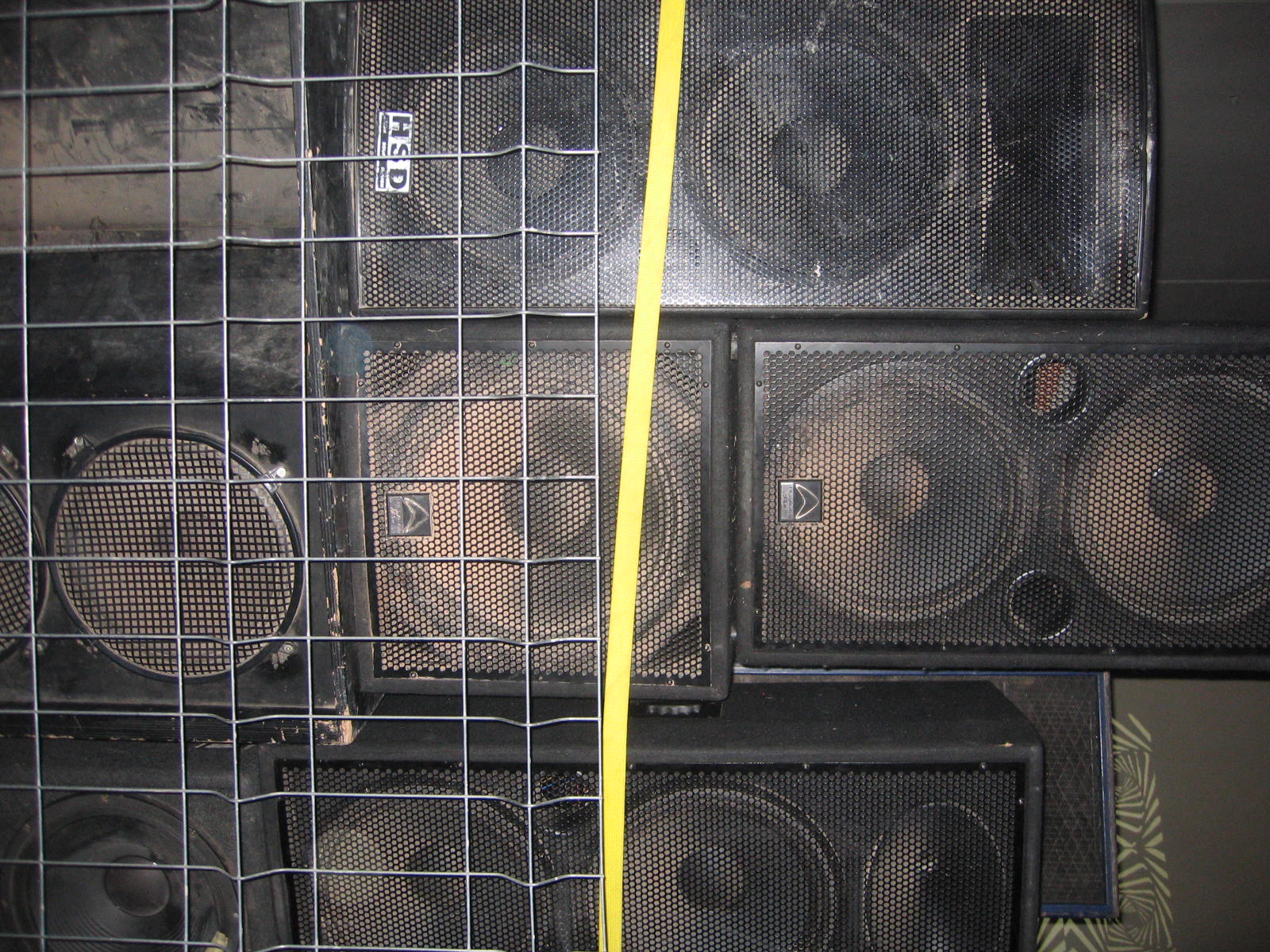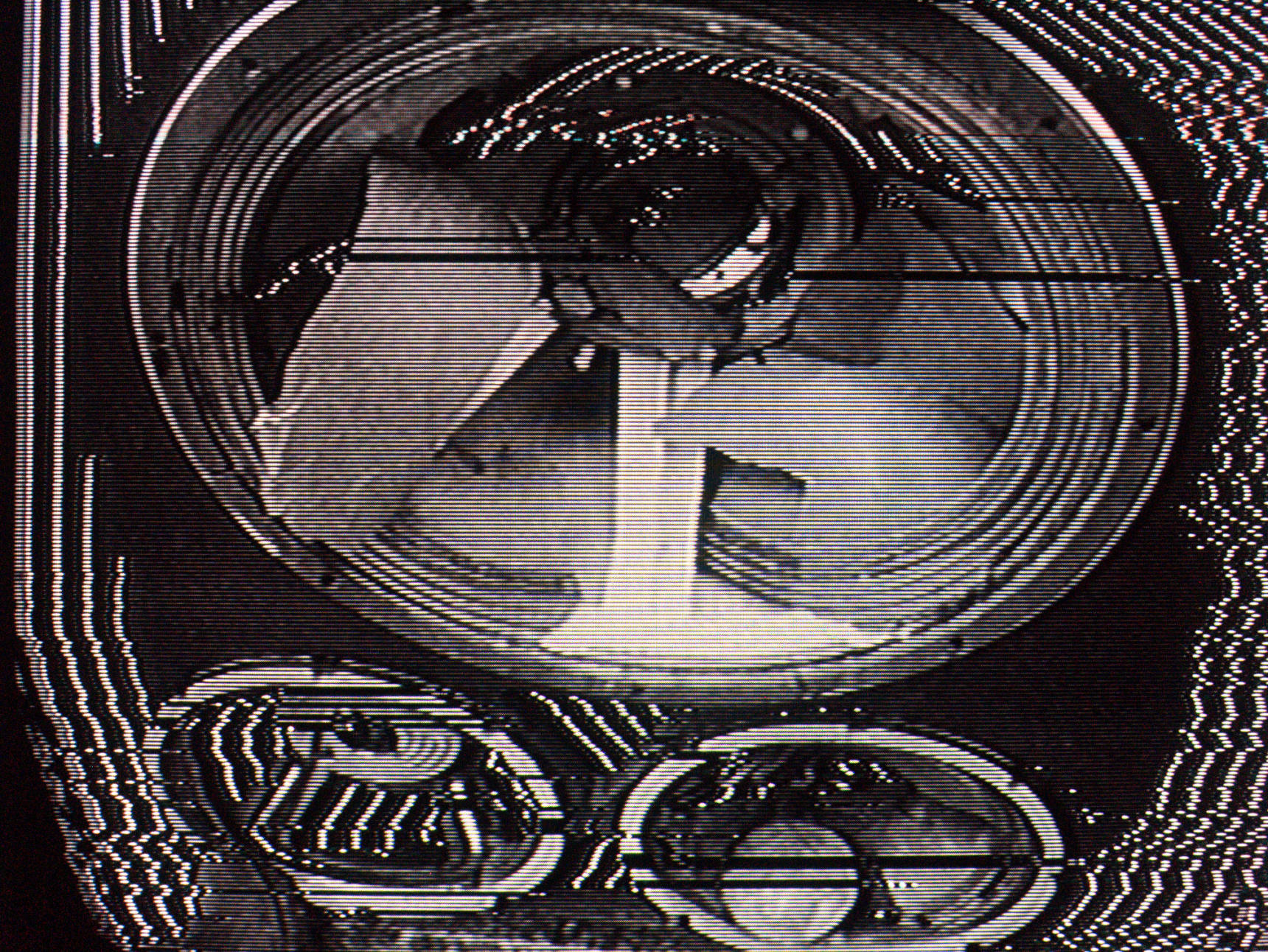interview: berlin & grist & the process
interview by Michael Tau for Anomaly Index, extended version.
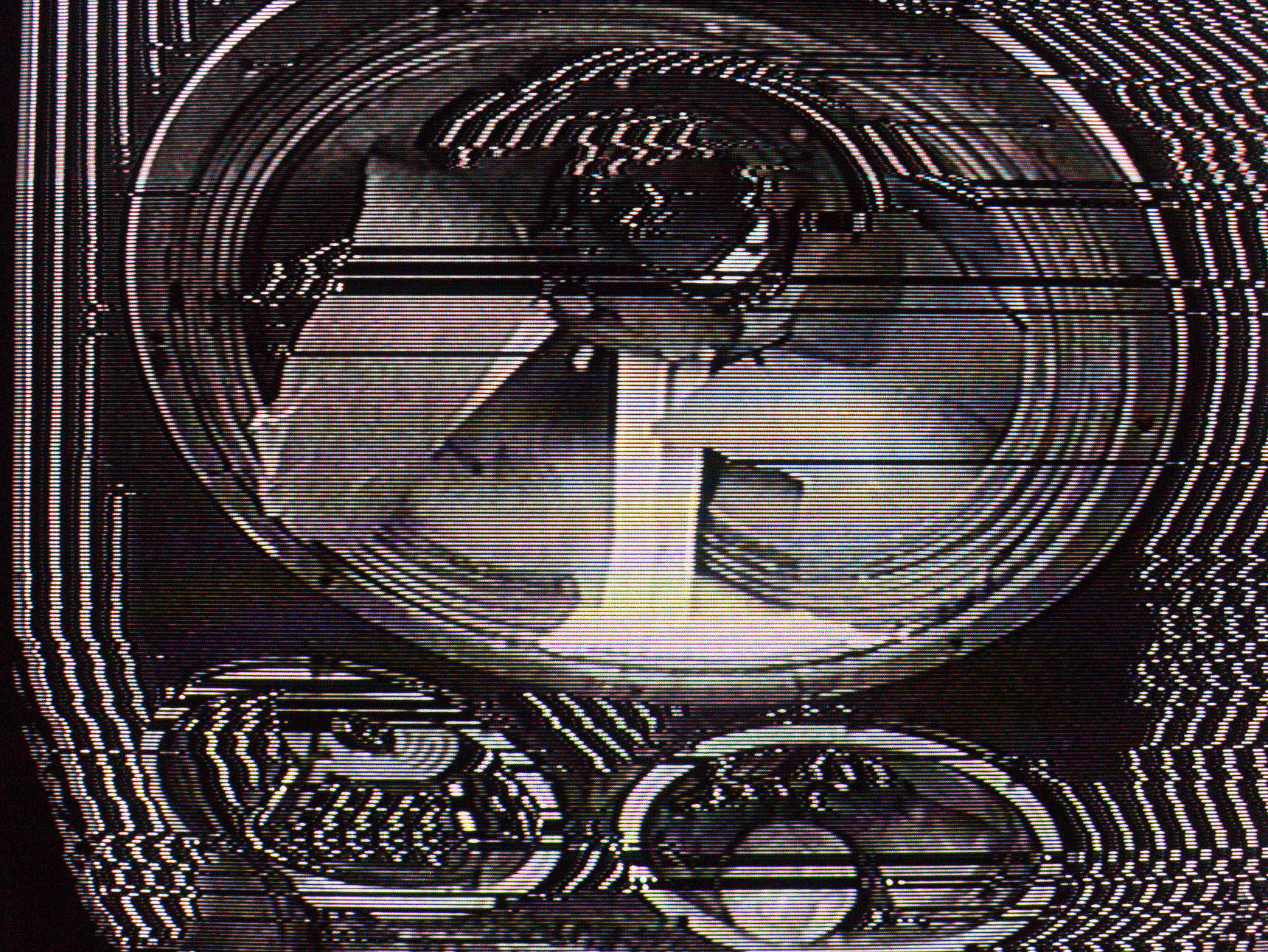
You describe being introduced to breakcore via an "outlaw warehouse party" in San Francisco in 2001. Can you tell me anything more about that party? What was it? What was it like being there -- what was the experience like?
San Francisco was a great experience. It was the first time I'd been fortunate to see a homegrown electronic music culture existing in the United States, in its natural habitat, on a bigger scale. I'd seen smaller scenes before, but this was another thing - something beyond a few dedicated folks - an actual community forming in a place, a world unto itself. By "natural habitat", I mean that all sorts of socioeconomic factors combine, and something just emerges. It *has * to happen, there's a real need driving it. I'd seen this in hardcore music in Massachusetts, which was what made it so powerful and special, and this struck me immediately as the same kind of thing. Folk music, peoples' music, of this time and place, here, now.
And so in SF, we had a bunch of absolute weirdos living in communal warehouses, building sound systems, forming crews, buying up old diesel school buses and converting them to veggie oil, making mixtapes for each other, bopping around the bay area in ancient cars, fishing through a pile of tapes in the glove compartment while crossing the bridge, building their own little self-contained scene, and finding wild stuff like "breakcore". Huh? What is this? Well, once you hear it, you KNOW. It was a spirit, a freedom of the time, and everyone in contact with it knew it was a special thing. Some folks were loosely basing a lot of their ethos on the UK's Spiral Tribe, but making it their own. Music is the anchor, but the roots of this thing have to do with many other pieces of life.

And musically it wasn't only breakcore, it was all sorts of stuff. Anything goes, just make it good! And so what was rigidly branded & balkanized back east, was free over there in SF, and it was lots of fun. In reality it was a bunch of kids in a warehouse who neither knew better not cared to know, the wisdom and idealism of youth, the drive to actually do something with whatever you have onhand. This meant xmas lights everywhere, homemade decorations, a righteous booming soundsystem, freeform & great music. There was absolutely no financial gain possible, so you get none of the icky stuff which appears later, just a bunch of people who are in it for the vibe, and perhaps something greater, perhaps the only thing there ever really is.
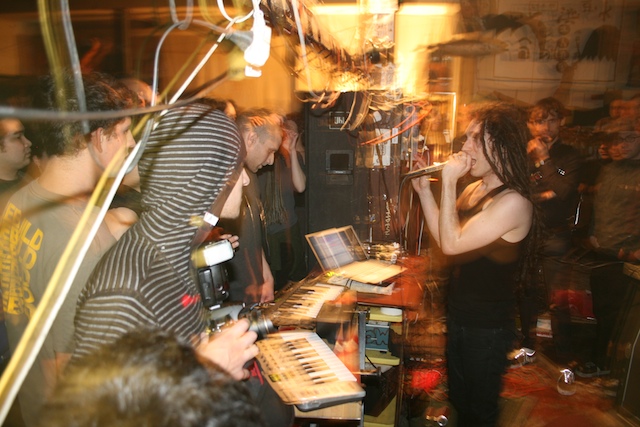
The events happen when folks become a little more punky ravey and get some turntables, & oh was it special. Still is. The first was run by S.P.A.Z. (semi-permanent autonomous zone) and 5lowershop crews, and there have been several more over the years, in different warehouses, outdoor locations too. The feeling is like when you're a little kid and it's your birthday - everything is special - and you get that sense of wonderment and fun in your life, when things are at their best.
The year before Grist, you put out four different 12"s. Rmx or Die is the closest, aesthetically to Grist (albeit more concise tracks) -- can you tell me about how this one came together? What's the story behind it?
Rmx or Die is a proof of concept record. I wanted to see if it could work. The fastest way was to sample entire tunes and rework them, as you do in DJ culture, for the dancefloor or the geek enthusiast. You rework what you love, present it to people in a different way. So as the folk troubadour sings someone else's song.... the producer makes a mashup. I've also always wanted to make hardcore punk electronic music since forever, so it was good time try both things and see what's possible.
What's the story behind Kriss Records?
I don't know much about their story. I just knew that they were the only ones around who seemed to be remotely into combining heavy guitar music with electronics, so I sent them a demo, and thankfully they responded. The record didn't do very well at first - I actually ended up buying the backstock from the label guy after a few months, because he wanted to get rid of it.
There's the Amen, Punk record, which is the second closest to Grist stylistically -- at least in its use of samples, especially Bad Brains. Can you tell me a bit about how these tracks came together?
Bad Brains is the bridge, the key, spiritually, between the hardcore punk & the reggae worlds, rock & roll, and by extension jungle and drum & bass. It's the Rosetta Stone of the vibe, if you will. These scenes we work in, we're all branches from the same tree. The EP came from a desire to let people in our little subculture know about roots & originators, lest we forget. A lot gets forgotten in all of this crazy bouncing around. Connect with the past, bring it into the present, bring this vibe & energy along, keep it alive like a little flame in your hands. I'm not sure people get it, still. Some do... but it's a spirit. You need to feel it. Certainly when I play these tunes out, many folks feel it. The rest will get there in time. It's good to put it out there. There's nothing special about how it came together technically - it's just following your nose, and doing what it feels like needs to be done.
On the technical side, I discovered that when you do mashups of something incredibly dense & fast, and you add amen drums into the mix... things get unbalanced. To get back to the good sound, you need to add other things as well. Some bass here, some more guitar there... and pretty soon you're playing most of it yourself! So... oddly this remix mashup work started me on the path of learning how to make everything 100%, which is what I'm doing nowadays.
In the interview, you talk about putting Grist together painstakingly using your CDs. I wonder if you might be able to tell me in more detail exactly how the record came together... When did you decide you were going to make a full album, what were the first few days like?
The first few days were like any other. There's rarely a plan. On the best days, I just go for what I'm feeling, and see what happens. Later after you've done a few tunes, you figure out that a theme is emerging, and it might be good to collect everything into a full album, aka a definitive statement. At that point, you follow the general plan & finish it, while still being open to unexpected new developments. It's a continuum from total chaos/freedom to total structure, as you progress towards finished. How structure & chaos interact, that's the key thing. Thankfully, Jason Forrest came around in the early time and gave me the opportunity to develop the sound into a full album release, for which I'm eternally grateful. We had a good chat about it and he got it immediately, thank goodness, and the full record got underway. From there it became a journey of editing, searching, narrowing down from many options to just a few, working those to refinement, focusing, and trying to create a finished piece of work.
Technically it was just a lot of time sampling things, slicing it all up in Ableton. Not much external gear, just sampling. From vinyl as well. My computer didn't like it one bit. Grist was really labor intensive, many tracks, many edits. It was the first Macintosh tower G5, the cheese grater, the one that sounds like a jumbo jet taking off under your desk! Part of the reason I gravitated towards heavy music was that blasted fan sound. I needed to make loud music in order to hear anything at all! The effective noise floor is well higher than analog tape....
What do you see as the conceptual thrust behind the record? (I'm intrigued by your mention of the tension between technology vs humanity, darkness vs lightness)
Grist is a concept record, to give an actual soundtrack to this feeling of fractured humanity by technology. Make it actually sound that way! We're being spiritually sliced up by modern life? How about literally slice up the samples! Take the screaming sounds from 1384892 different bands and splice them all together, play one person's sound against another's, maybe this would be a good way to hear it, and understand. You see, my favorite punky music at its core is a reaction to this techno-dehumanizing society, a way back to goodness, a critical eye, and at its best, hope for the future. Let's see what happens.
Dark versus light is actually a bit too simplistic for my liking. I think of it more functional. We got all this crazy tech now, but are still carrying values from pre-tech times, and millions of years of instinct. What are we gonna do? What do we want? What's a good thing to keep, what's good to discard? Toss all these broken up pieces in the air, let them fall to the ground, and see what we can build. We'd better sort it out, right now. Certain ones like true love and curiosity are worth saving, certain other ones like tribal division can go, in my opinion. Maybe it's not all that different from the past, and the big questions just rage on, in slightly different forms.
How many sources, and how many samples in total, are included in Grist? The WhoSampled listing seems incomplete.
Oh, I have no idea. There's a gigantic folder. I would say WhoSampled has got about 50% of the sources. When you sample little pieces of feedback, drum hits, etc, that becomes impossible to find, and for me too. It's lost to time, it's on a backup somewhere far away. Maybe the algorithms will improve drastically in the next few years, and they will be able to provide a complete list!
The extended list goes deep, but the sources are confined to a relatively small number of bands, though. After doing this stuff a while, I realized that whatever you sample, you are promoting, so I keep it to my favorites mostly.
You mention that Grist was released as two EPs, since things were slow-going with all the painstaking sequency, etc. Was that the Grist and Live and Regret EPs?
Yes, exactly that. We released the first EP as a prelude to the second. Both are on vinyl. The two vinyl EPs add up to the full Grist album.
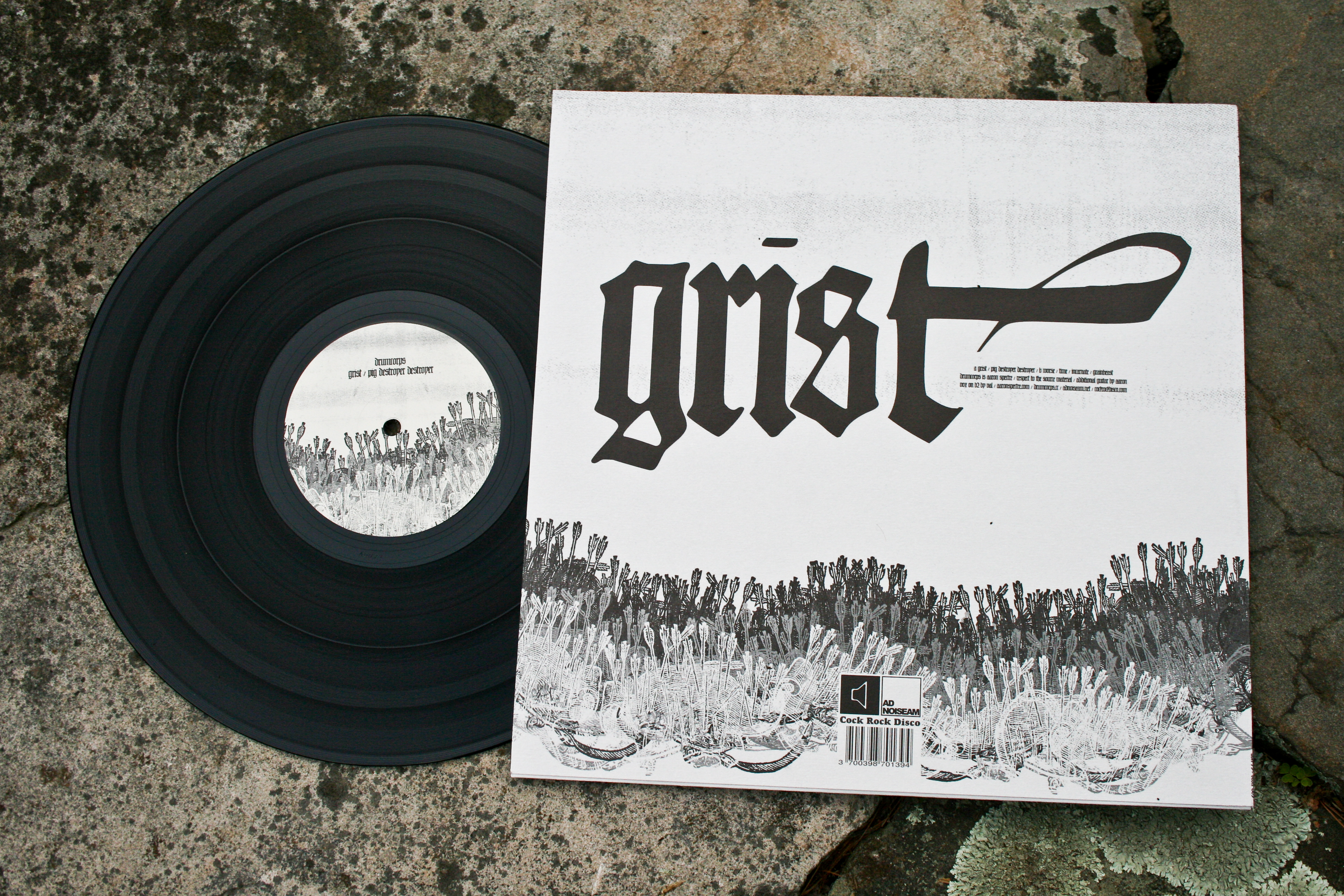
In the Breakcore Guidebook article, you mention arriving at a moment of clarity while in Berlin, among some of the adversity. "At some point in the middle of it all, you have a moment when you realize the truth about the world and you see things as they truly are, in a moment of shining clarity." Can you elaborate on this?
As concisely as possible: industrial capitalism is a death march, we're all playing our part in it, and no one is in charge. We follow the path of previous generations like lemmings to the abyss, the edges of which we are already starting to see, and which will become increasingly visible for the rest of our lives, the next generation, and anyone who may be left after that.
Most people are good, and they want to help! But this isn't good for the thing. To get us to cooperate with mass extinction, we must be forced, coerced, and propagandized. And so we are all sitting in our separate bubbles. We wake up each morning in half-truths, put our shoulders to the wheel, & advance a suicidal system which benefits the few, to the eventual destruction of all. It's bonkers! It's way beyond ideology. It's not just labor versus capital... It's capitalism versus all life on earth. I'm sorry, but that's it. Obvious to most, but if there's anyone left doesn't know this yet, they will know soon.
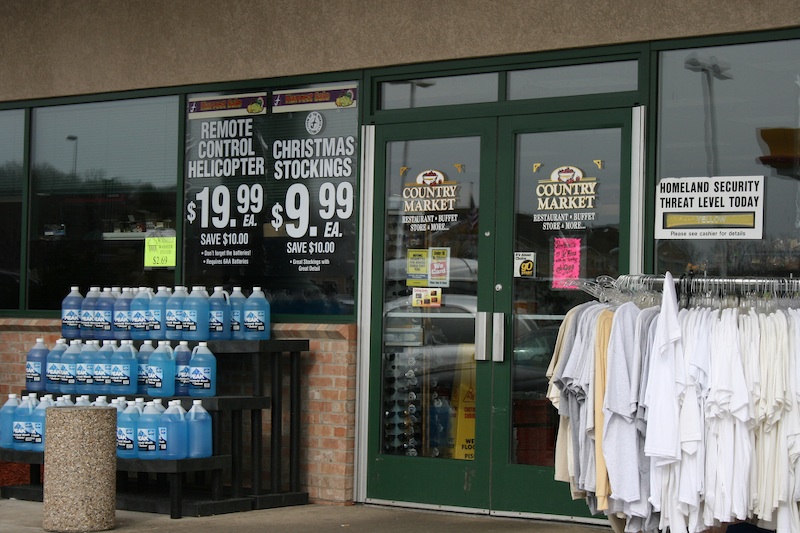
It goes a lot deeper, and I have so many stories from the road... The whole time fundamentally solidified my approach artistically, the things you value, what you strive for in your work, who & what you choose to align with.
See, It wasn't just Berlin, it was the hardcore touring. You step into lots of different peoples' bubbles, and you really feel what it's like to be them, for a day. You eat their food, ride the bus together, watch their TV, sleep on their couch and feel what their blankets are like. You hear what they value and what they dream about doing. You meet their families and see where they grew up.
I must clarify that this style of touring was very, very grassroots, and only barely possible. Super low budget, maximum grueling hours, every method of transport, every ridiculously long ride, sleeping everywhere you can, hauling lots of heavy gear, because I'm ridiculous and insist on playing guitar / using lots of MIDI controllers. There's lots of half-sleepy daydreaming out the window, gazing at the woods & rolling fields & smokestacks out there, loading docks, cement factories, suburban stores, city centers. And then you arrive, and there are a host of people and things to learn and then, the show. It's on. A flurry of activity, and then maybe a little sleep and then back into the moving tube / on the road again. I went absolutely everywhere. Each city contains many memories and a host of people whose lives we shared for a day or so. I used to keep all the flyers up at home, but I took them all down, because it started driving me crazy, everything reminds me of people and I wonder how they are doing.


One day your mind integrates all this experience you've had into these words that make sense. At the time, it's a mess. Some of this crazed-out feeling came through on the Grist album, I hope. Many of these ideas are also prominent on my next album, and this time they're stated explicitly and clearly. I hope it's all fairly easy to understand.
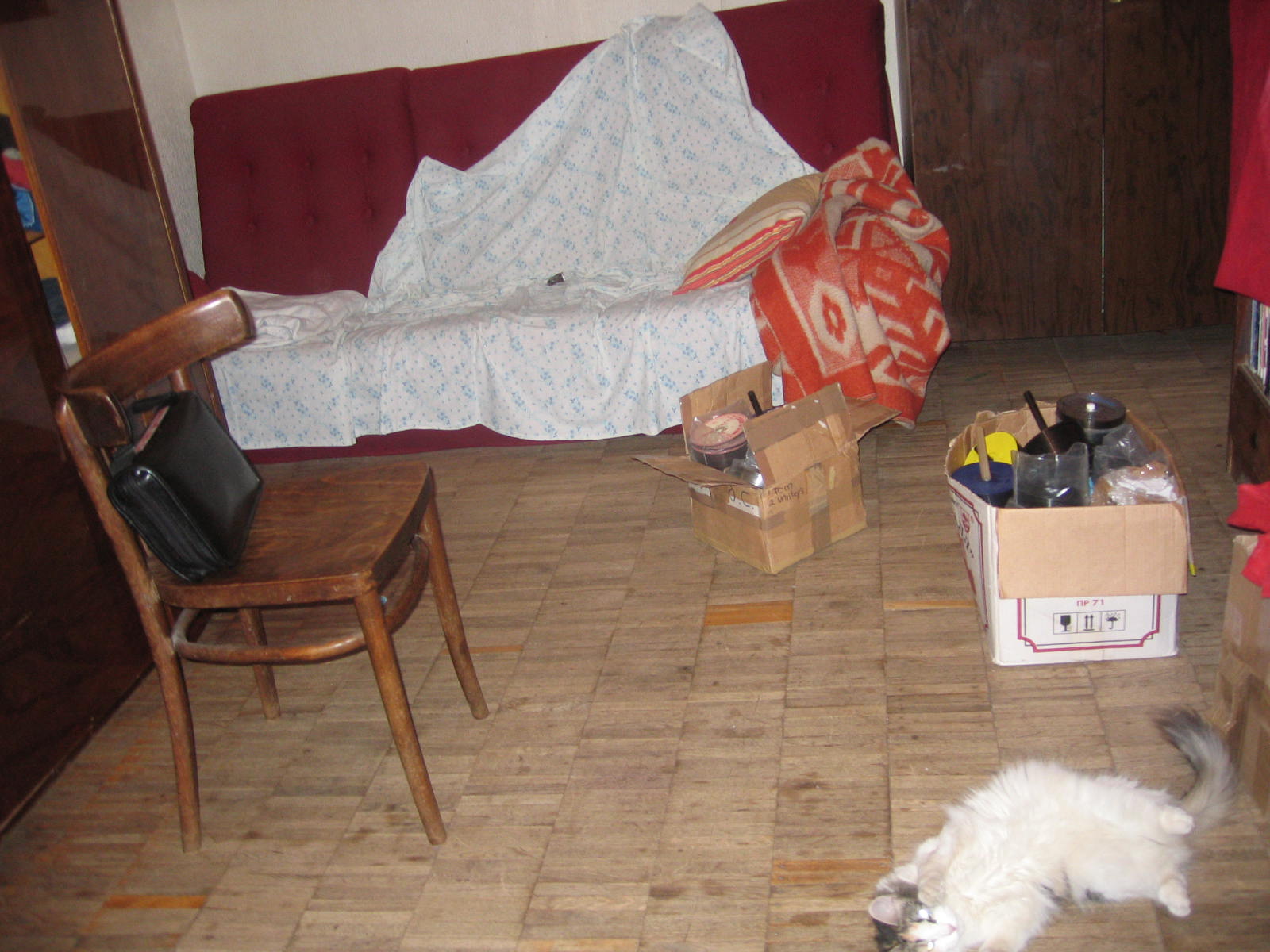
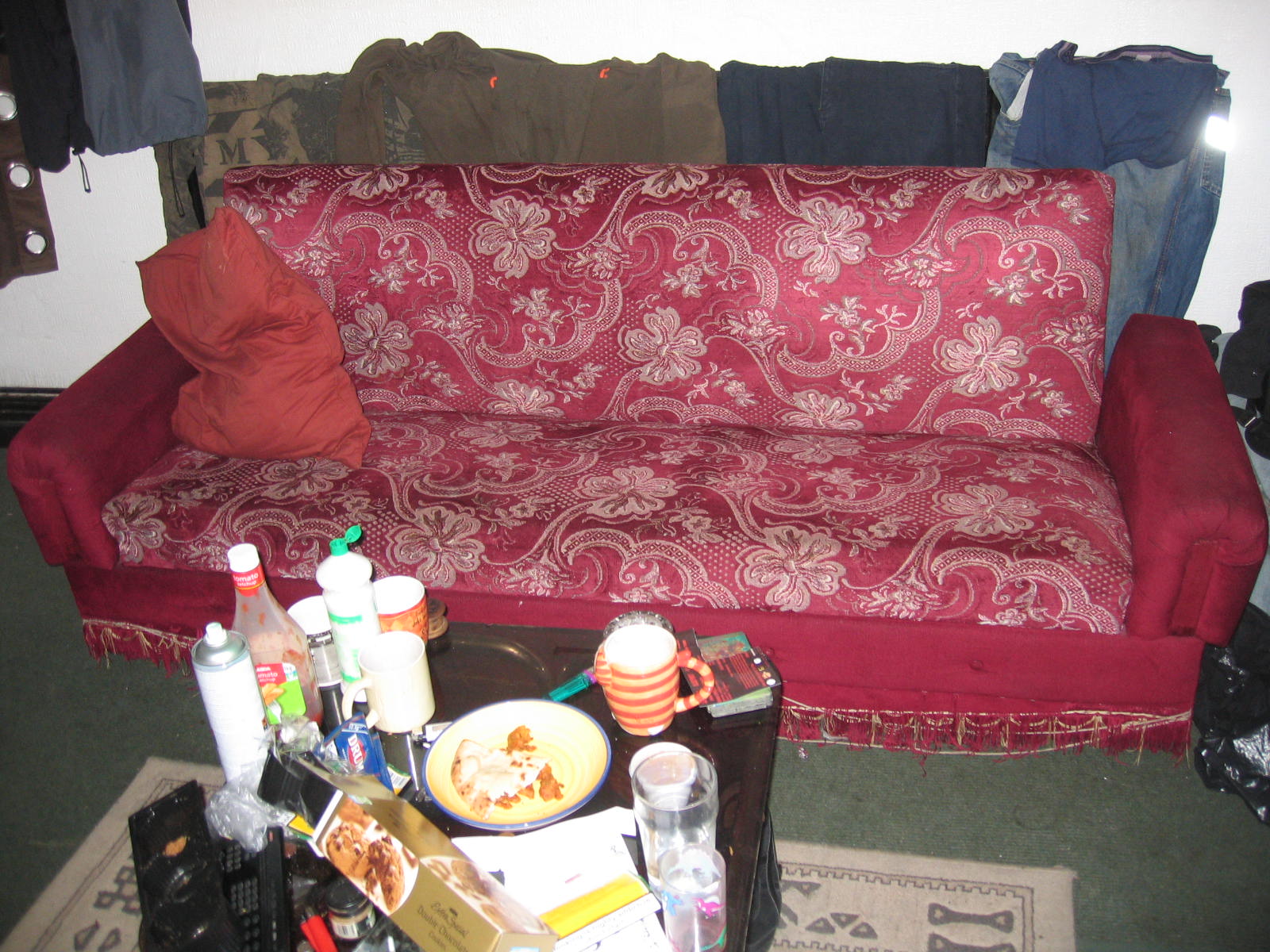
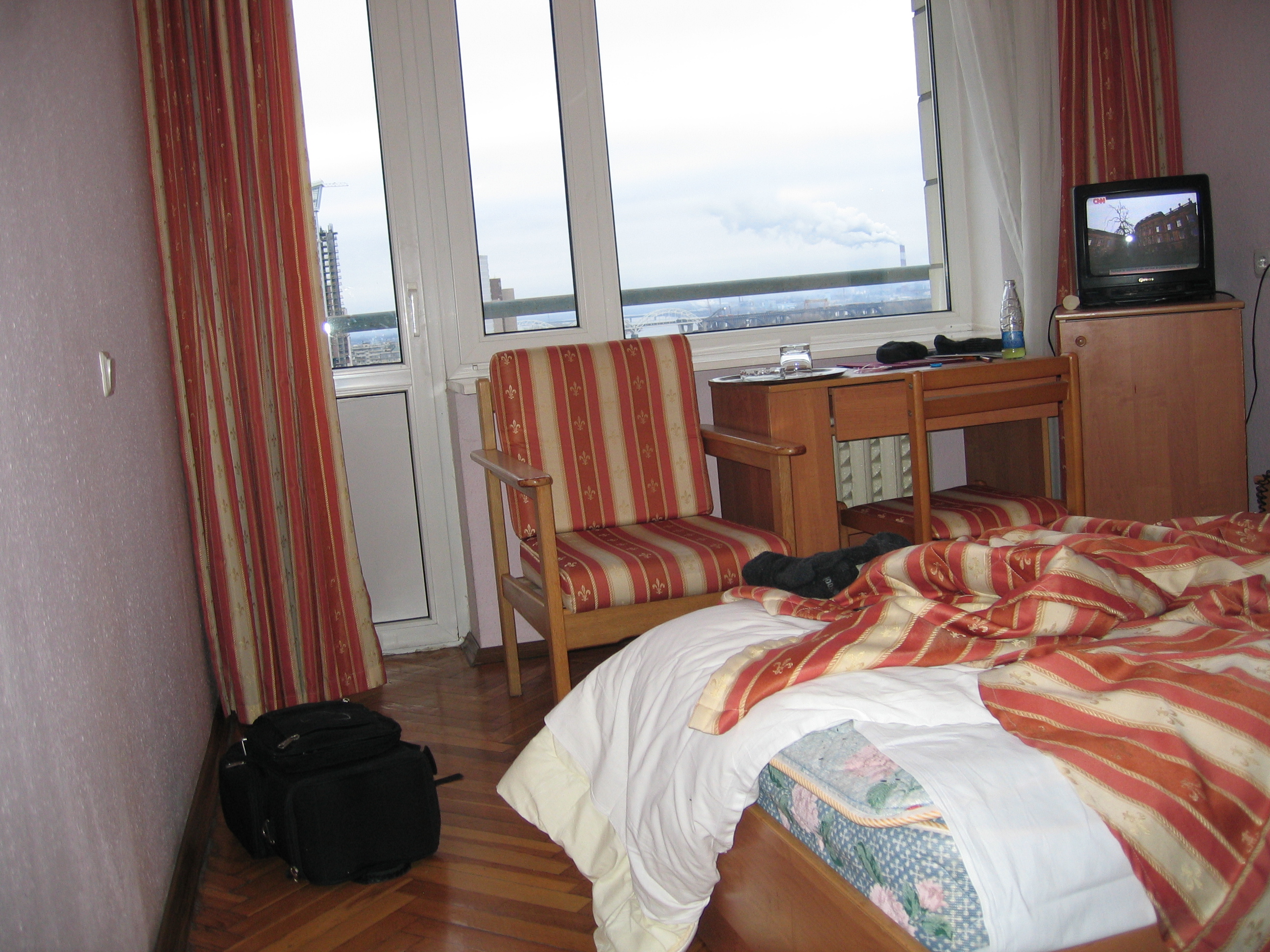
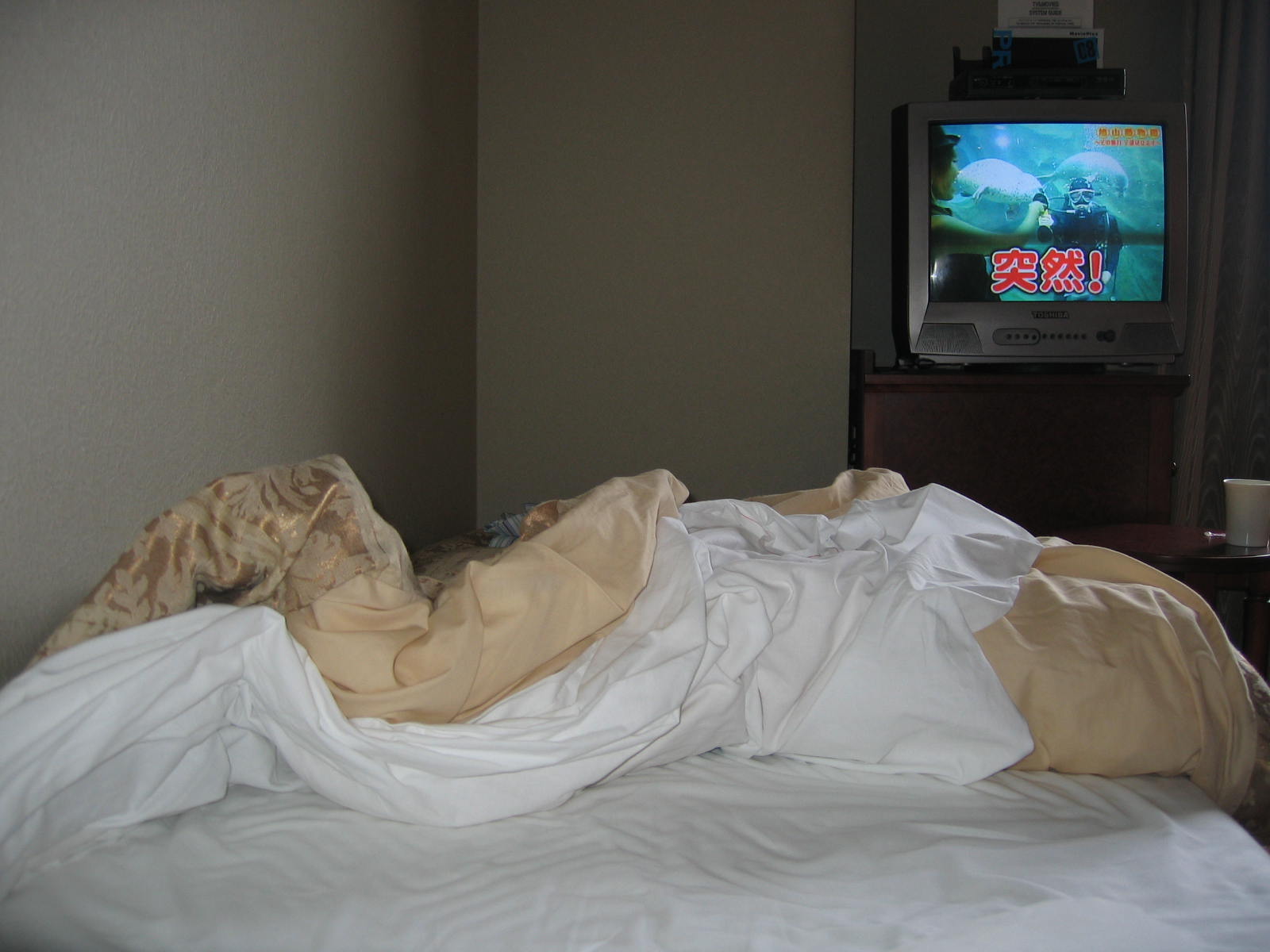
One lingering question is how this record ended coming out on Ad Noiseam? How did you get connected with the label?
Let's please forget about Ad Noiseam. They ripped off their artists & ghosted everyone.
Grist was released as a joint venture between Ad Noiseam & Jason Forrest's label. It was Jason who partnered with them, and I went along with it. ADN was very good at handling the every day grind / not-fun stuff of running a label / i.e. setting up manufacturing, stocking distros, keeping track of input & output. Jason excels at creative direction, big ideas, & spreading the word, so it was a good combination at the time.
But it didn't last, unfortunately. Ad Noiseam built a lot of goodwill and momentum over the years, but when tough times came, they behaved dishonorably, choosing to become unreachable and keep the money, rather than settling things cleanly. That their fanbase gave them the benefit of the doubt and continued to believe for so long, is a testament to the general good nature of our scene. In so many other scenes, it would have gotten ugly, quick. Here in the geek-o-sphere, people just shrugged and moved along. It's good in a way, but it also really sucks, because it got me into a big hole. I'd spent 9 years working on the next album, and when it came out, it didn't come out. Most of the vinyl run sat in their storage space for several years. Promotion wasn't done. Distributors never received records ("awaiting stock...") Orders to the label's bandcamp & online stores were paid for but never fulfilled. Streaming money went into a big void.
I had to buy my own record from one of the few Berlin record shops that carried it, before it sold out. When that vinyl arrives in the mail, from a store instead of the label, with a receipt, it's one of the worst feelings. It made me cautious & suspicious to a degree which I wasn't before. I witnessed peoples' utter spinelessness in the face of overwhelming evidence, their apologies for egregious behavior, and it shattered a lot of belief I had in folks. Was it really a good-natured scene, or an apathetic, hedonistic one? I still don't know.
It seems to me that in a scene that really cares, people stand up for each other. And by extension, they also stand up for truth, justice, & the well-being of all. This means actually paying for releases. This means helping charitable causes, in a strong way (i.e. not just a no-risk soli party/booze session, but actually trying for the cause!). It also means having enough self-respect to charge a fair price for your fair work, and build the scene, so that you have some actual power to affect change, to move the needle a little bit in the good way. If we want to be a bunch of miscreants bouncing around in the catacombs, ignored and powerless, fine. But I'd rather reach people. I endeavor to be involved with some folks who have this spirit, in the future. It's something I seek out now, and I gotta feel it. What all are we doing here anyway? Let's make our time count.
Also, when you were putting it together, you were assembling it at your home in Berlin. Could you tell me anything about what that place was like? E.g. was it an apartment? Were you living with your girlfriend? Lights on, lights off? Morning, middle of the night? I'm trying to get a mental image of what the experience would have been like creating this colossus of a record!
It was me & my gf, in Berlin-Friedrichshain, in our apartment, on what has got to be one of the most crazy streets in existence. She'd be in the kitchen, which doubled as her work area, and I'd be in the bedroom which doubled as the studio. It was mostly during the day work, and we'd sleep at night. Sometimes I'd work late & she'd nap on the couch, then we'd both move to the bed.
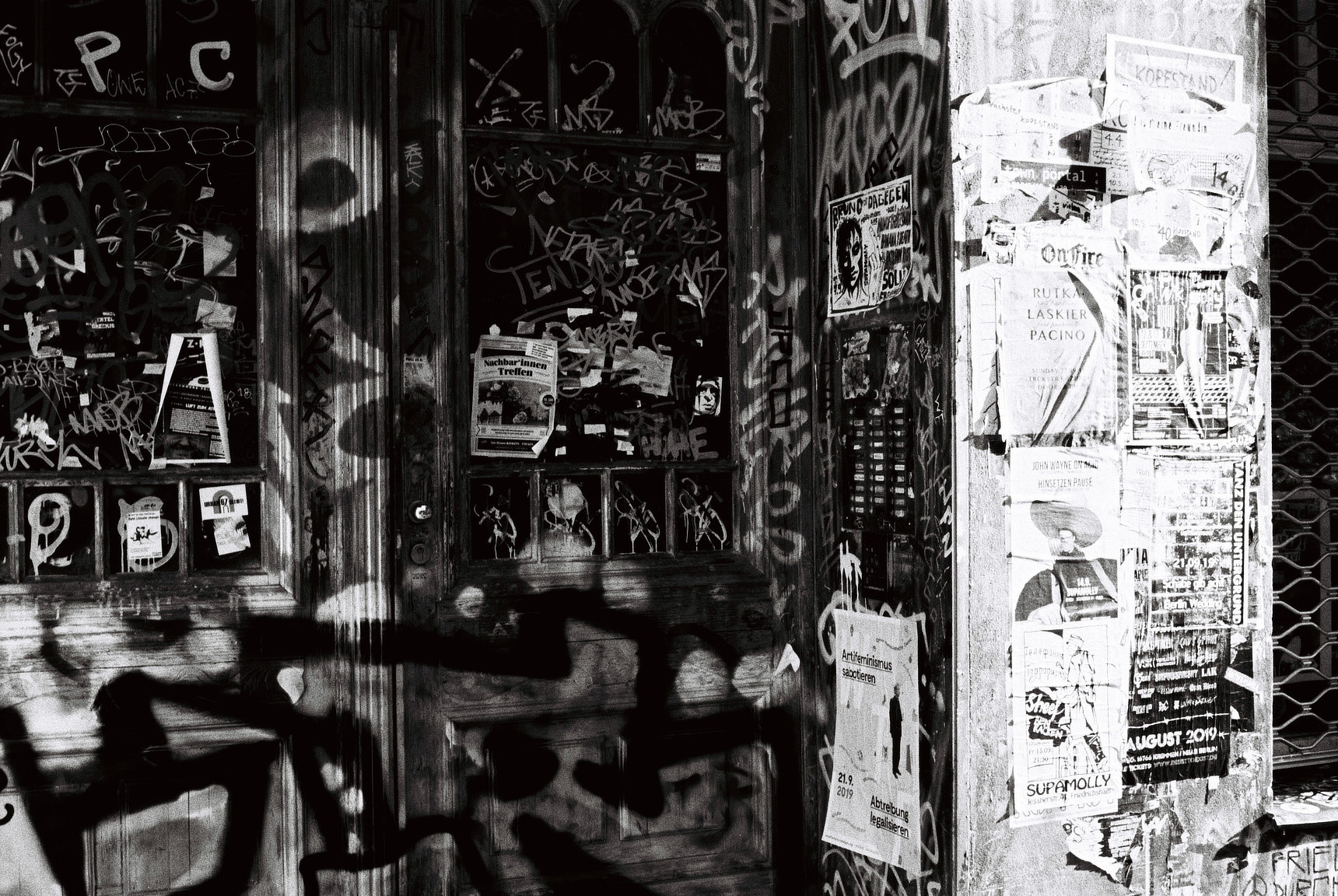
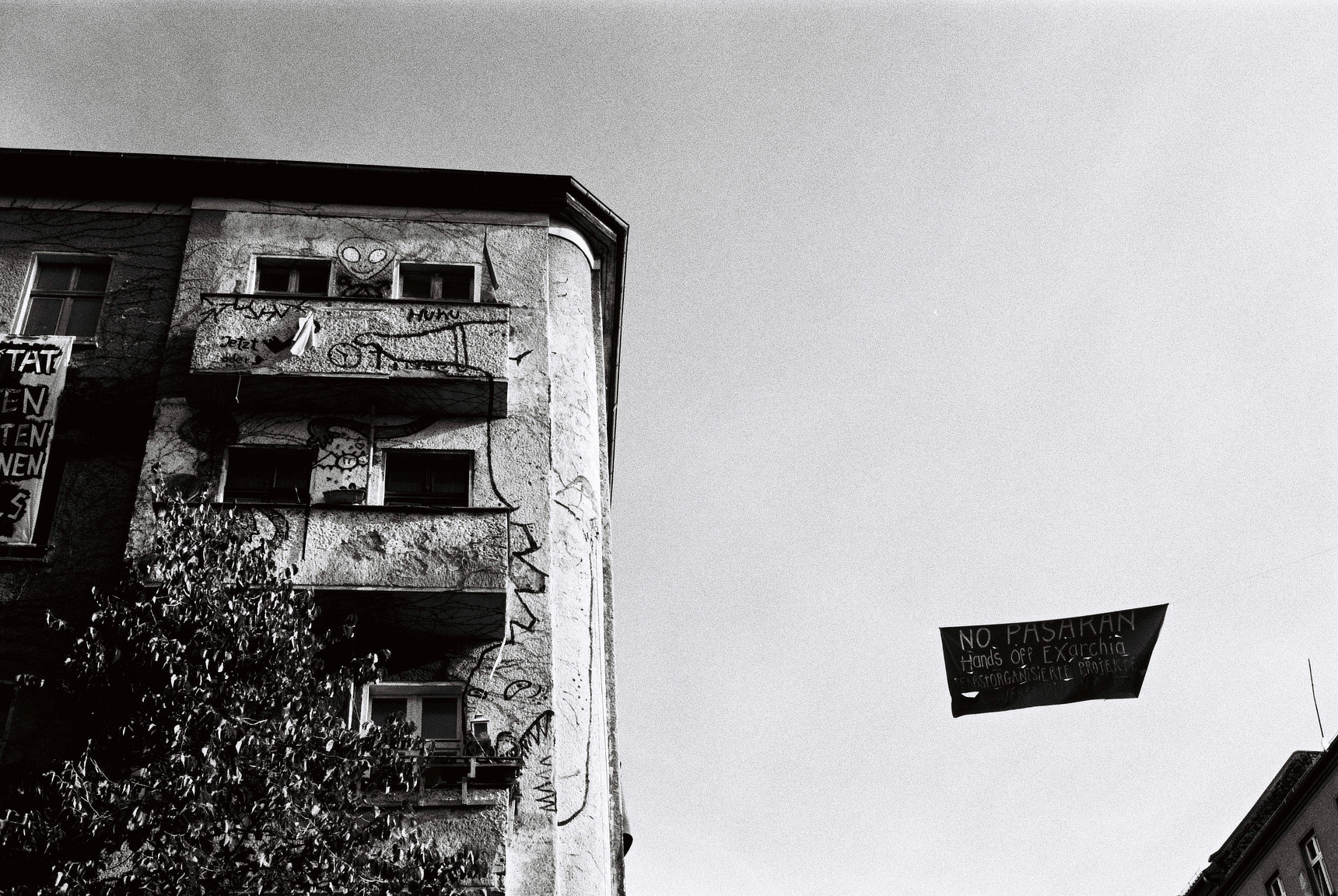
Sometimes our downstairs neighbor would be screaming every obscenity in German, at full volume, watching football. This could strike at absolutely any hour of the day or night, 4 am or 9 am or 5pm. There's always a game happening somewhere... Sound of clinking glass bottles rolling in the streets. The pool table "break!" sound from a bar nearby. Barking dogs. Punks & Nazis fighting each other. Police patrols and that diesel van in low gear slowly creeping sound. A non-stop hangout / noise blasting no-peace kind of place. Never a dull moment. And then you had that computer fan.... so the ambient music went on the backburner and the loud stuff came out.
There were fires in the middle of the night, an armada of trash and discarded mattresses, chairs, couches... That was the street, which was right outside the bedroom. The other side of the house, the courtyard, was the polar opposite. Bunny rabbits & cats free roaming, catching sunbeams in harmony, kids playing in the sandbox, flowers growing, barbeques and laughter. Nearby, good friends & epic nights of DJing & good tunes. Oh dear lord. I simultaneously miss the place dearly, and never want to go back again. Anyone who has lived there will understand this...
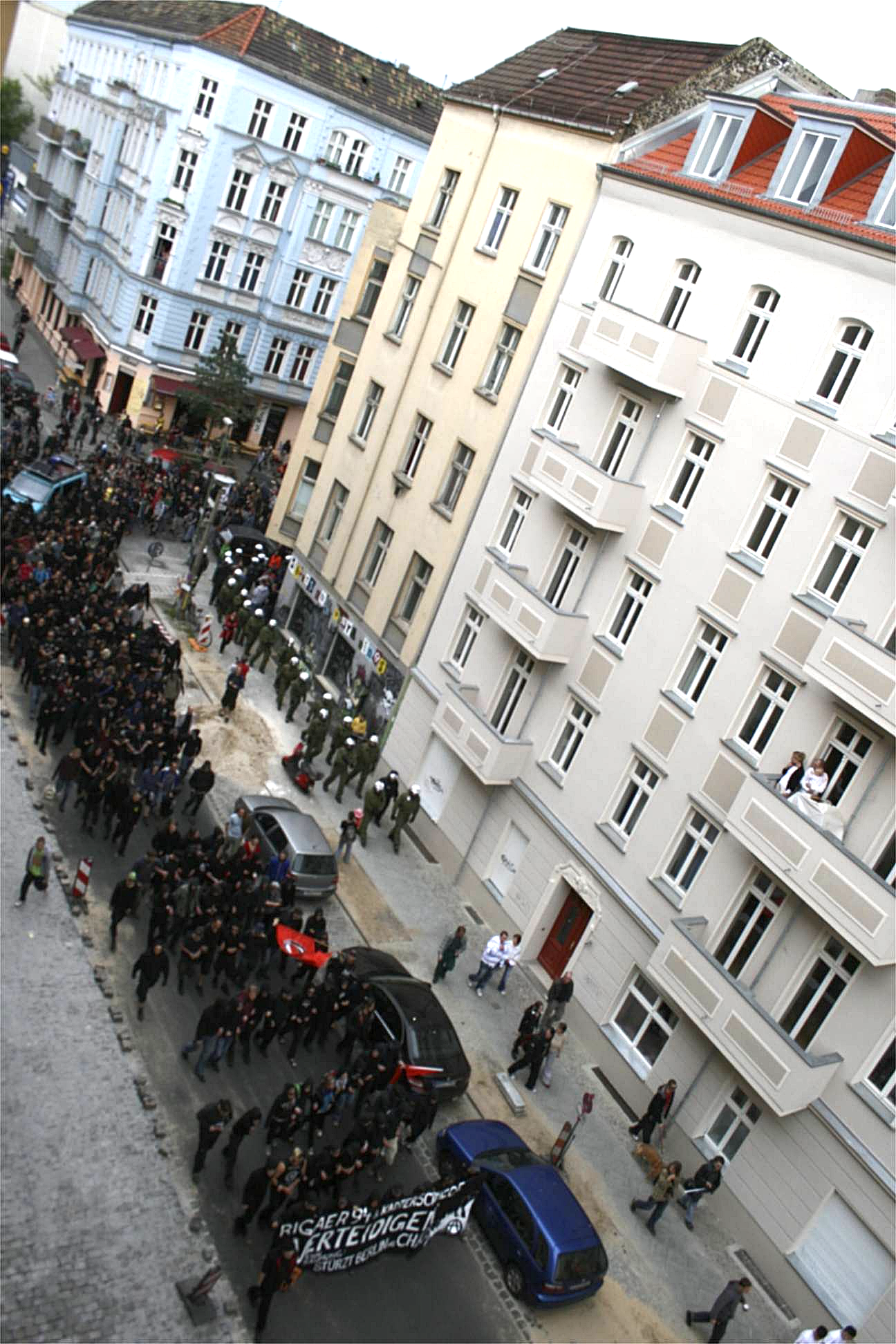
Inside, I always try to make things nice. When the music is heavy, everything else has gotta be cozy, is my general way. Heavy music is exhausting, and you need a place of peace & rest, to focus & do what needs to be done. Plants, stuffed animals & nice memories from travel, instruments, blankets, nice places to be, etc, it all helps.
Next to the studio setup were some Technics turntables set up on beer crates. I'd spin from those for a little break, or sample from the records. Being new Berliners on a budget and living by our wits, I discovered one day that you could get a huge stack of empty plastic beer crates at the drink store, for a mere €1 deposit. They're really sturdy! Add a plank of wood and you're good. Take that Ikea! The general detritus of expats / luggage in the corner / diy furniture solutions & a hodgepodge of stuff from the flea market.
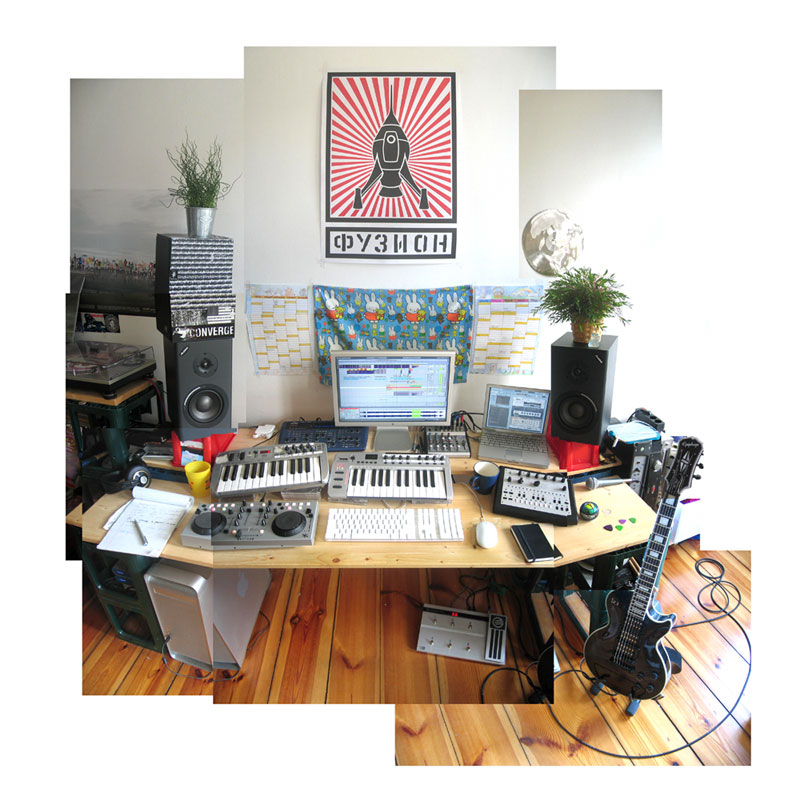
If you look at Ableton's promo images for Live 10, with a mess of cables on an improvised desk in a white apartment, that's where they got that image. It was our reality, and the lives of many. A bunch of international weirdos with an an ever-increasing collection of plug adapters. The certain vibe of owning nothing which is permanent. No roots, no future, no past. Someone named it Digital Nomads, which seems appropriate, though I don't share the same blindly optimistic view as perhaps was originally intended. We are somewhat nomadic, it's true. This gives you a sort of freedom, and it takes many, many things from you, as well. Good to know what it is. I had one of the original M-Audio backpacks designed to hold a computer and Oxygen8 controller, which I'd use for gigs, and all of it would stay in the hallway permanently, as it would totally reek of smoke. Thank you the eventual EU smoking ban! That was nice. Until then, it was come home Sunday, take off the backpack and all my clothes and directly into the shower, rest in the Ableton wires room, sleep.
And did you bounce tracks off others as you were creating them? Trying playing unfinished versions live?
Yes, it's always helpful to test out unreleased tunes live, it helps make things real, and it lets you know very quickly which parts need work. I certainly played a few out while they were in progress. Jason Forrest also went through a rough draft of Grist & helped me narrow down some things, expand some others which were working well. Besides that though, it was done in relative isolation. One of my main methods is to disconnect from everything, and let the good thoughts bubble up, those golden ideas which strike like lightning but are gone just as fast. If you're preoccupied with other peoples' stuff, you might miss those moments as they pass. It's your subconscious mind figuring things out in the background, and bringing them out into the conscious. You gotta give yourself space to do so. That means shutting out everyone and everything. It's hard to do, especially if there are people in your life, but carving out that silent space is essential for me. I was renting an actual bomb shelter as a studio once, and it was heavenly, as you could close the giant submarine door and be totally blissfully alone, no distractions. In the Berlin days I was all about the porous studio experience and getting the vibe of where you are, but nowadays I prefer a cave, the deeper & darker the better. No windows, no sounds, total darkness, just work. Once you're out of the cave, and have done the stuff, outside opinions can be helpful. Like everything, it's a balance. Generate wild & free, curate it later.
